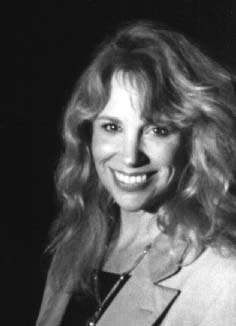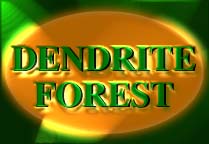| On land, my little boy and
I visited Mayan children swinging in hammocks inside thatched huts
just as the first television penetrated isolated forests of the Yucatan
peninsula. I wondered how flickering images from another world would
change these childrens' future, and if it was possible for them to
use these same tools to preserve their values and culture. So I went
back north to put together a course of study we decided to call Applied
Media Anthropology.
Beneath
the sea, I was intrigued to see how even marine invertebrates such
as sponges can learn. I did graduate work in marine biology. When I wasn't
underwater, I spent long hours at UCLA's medical library to research the
effects of learning on neural structures. Today, our World Wide Web neuralnets
are modeled on these simple biological neuralsystems.
Now The Shaman Within, my
new book, charts the synergy between electronic networks and the
human brain. It explores a 21st century pathway to mental, physical
and spiritual powers explored 2000 years ago by the ancestors
of those same Mayan children who first inspired this quest.
Creativity is a prime passion. Michael
Milken's Museum of Creativity project invited me to design installations
to explore the power of myth and inspiration in the creative process.
The Los Angeles Times , The Arizona Daily Star, City Magazine,
The Tucson Weekly and national magazines such as High Performance,
Digital Media and Online Access have published some of my feature
articles, several examining how ancient wisdom can provide
guidance for defining culture in the networked world of cyberspace.
In Los Angeles I write and
produce documentaries and educational series aired on PBS, Discovery, History
Channel, Fox Television, CNN and for international syndication. Several
projects have focused on troubled youth, medical technology and social
policy, such as the documentary for PBS about a wagon train for delinquent
kids called Vision Quest.
I've been honored by Press
Club awards for investigative journalism, and as contributing editor for
Digital Media, Cable-Telco Report and SPECTRUM I've covered
culture and policy issues related to digital technologies and the convergence
of electronic networks. I've given numerous seminars, radio presentations
and television interviews on those subjects in the U.S., Australia and
for Japanese television.
FreeFall in Cyberspace
was a performance piece in Sydney, Australia, which joined Aboriginal artists
and Navajo artists via space bridge to explore how online Native American
art relates to traditional values and dreamtime.
On the home front, I co-produce
the 48-part Computers,
Freedom & Privacy Video Library Series (sponsored by Apple Computer,
Association of Computer Machinery, and The Electronic Frontier Foundation)
which spotlights debate about challenges and opportunities of the emerging
networked world.
I am co-director of TopangaOnline,
our experimental hometown in cyberspace, and co-founded the Ethical
Standards & Practices Committee of the Association
of Internet Professionals.
My hands-on experience
as a systems integrator (in addition to
SoftForce) includes eight years as president of The Icon Corporation,
for which I supervised design, construction and management of
a showcase interactive cable television, security and conferencing
network built with General Instruments for a 300-family gated
community called Cobblestone. In Arizona, Icon also developed
a video database and training system for ADTEC (the Arizona Diagnostic
Training and Education Center, a school for developmentally disabled
children); and helped to design and build Tucson's nationally
recognized interactive cable television system. I was co-founder
and public interest chair of the Pima County Cable Commission.
The public participation process which I developed with The Tucson
Media Coalition and the Urban Institute won Newsweek Magazine
kudos as the outstanding example of community involvement for
regional CATV franchising in the nation.
At New York University
I studied cultural change with Margaret Mead's Urban Anthropology
program, had classes with ethnomusicologist Colin Turnbull (who
wrote THE FOREST PEOPLE about the Ituri Pygmies) and specialized
in learning how to duel with prominent Freudians. Study of photojournalism
and theater took me to the New School of Social Research, and
I was closely associated with the founding of the now-famous Performance
Group on Wooster Street.
I earned my Master's
Degree in Applied Media Anthropology at University of Arizona,
where complementary medicine and integrative health guru Andrew
Weil, M.D. was a strong influence. I taught television production
and developed seminars about the social implications of electronic
media at University of Arizona and Pima Community College and
produced interactive television specials designed to build a lively
place for divided multicultural communities to share friendly
debate on difficult issues in a context of music and down home
ethnic fun.
For a resume of multimedia systems integration,TV
productions and publications. |


